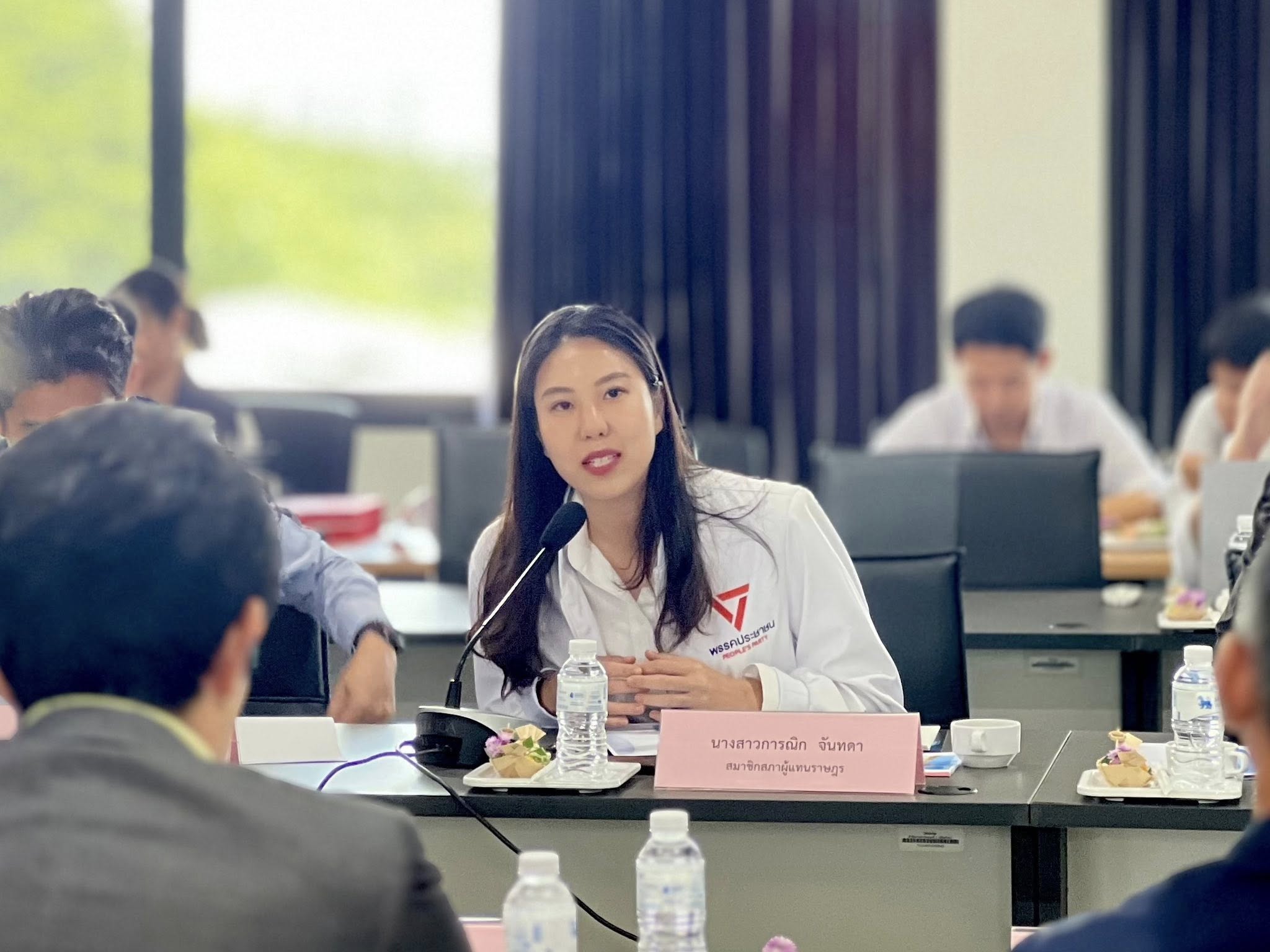Karanic Chantada, MP for the People's Party from Chiang Mai, proposes allowing private hospital patients to purchase medications outside hospitals using prescriptions from doctors. Following the model used in many countries where prescription systems are separated from medical practice, doctors would examine, diagnose, and prescribe medications, allowing patients to take prescriptions to pharmacies where pharmacists would dispense drugs and provide guidance according to the prescription. This would create an alternative option to reduce healthcare costs and promote fairness in the healthcare system.
During a subcommittee meeting on consumer protection law studies within the House of Representatives Consumer Protection Committee last week (September 17, 2025), which considered approaches and recommendations to address unfair outpatient fee collection practices by private hospitals, Ms. Karanic Chantada, MP for Chiang Mai from the People's Party, questioned private hospital representatives about providing opportunities for patients receiving treatment at private medical facilities to have the right to choose to purchase medications outside the hospital using prescriptions received after medical diagnosis.
"Would it be possible for private hospitals in the long term, assuming doctors prescribe medications, for patients to take prescriptions outside to purchase medications elsewhere? Would this impact private hospital management if we lose revenue from medication dispensing? Because many countries use this system, in case we might adopt this approach in the future," asked MP Karanic, who holds a Bachelor's degree in Pharmacy from Prince of Songkla University, during the subcommittee meeting. She added, "If we have an alternative system that separates dispensing between doctors and pharmacists, have private hospitals ever planned long-term how they would manage hospitals if revenue from medications that patients don't need to purchase at private hospitals disappears?"
Regarding responses from private hospital representatives attending the meeting, MP Karanic stated that private hospital representatives indicated they had not yet planned budget management if they were to lose revenue from medications and medical supplies.
MP Karanic further elaborated after the subcommittee meeting that many countries have separated prescription systems from medical practice, where doctors examine, diagnose, and prescribe medications, allowing patients to take prescriptions to pharmacies where pharmacists dispense drugs and provide guidance according to prescriptions. However, Thailand does not clearly have this separated system, forcing patients in public hospitals to queue to see doctors and queue again for medications, spending entire days at hospitals waiting.
Meanwhile, in private hospitals, patients receiving services must inevitably pay for medical treatment, medications, medical supplies, and various services at prices significantly higher than public facilities. Although patients at private medical facilities may have financial capacity, sometimes hidden costs that arise exceed expectations.
"Personally, I view this problem as creating impacts both in public hospitals, where patients must spend entire days waiting in queues for medications, and in private hospitals, where patients must pay unnecessarily high costs. Allowing patients to take prescriptions from doctors to purchase medications outside might be another alternative that could help reduce cost burdens and create fairness in the healthcare system to some extent," MP Karanic concluded.
www.facebook.com/tcijthai
Tags






